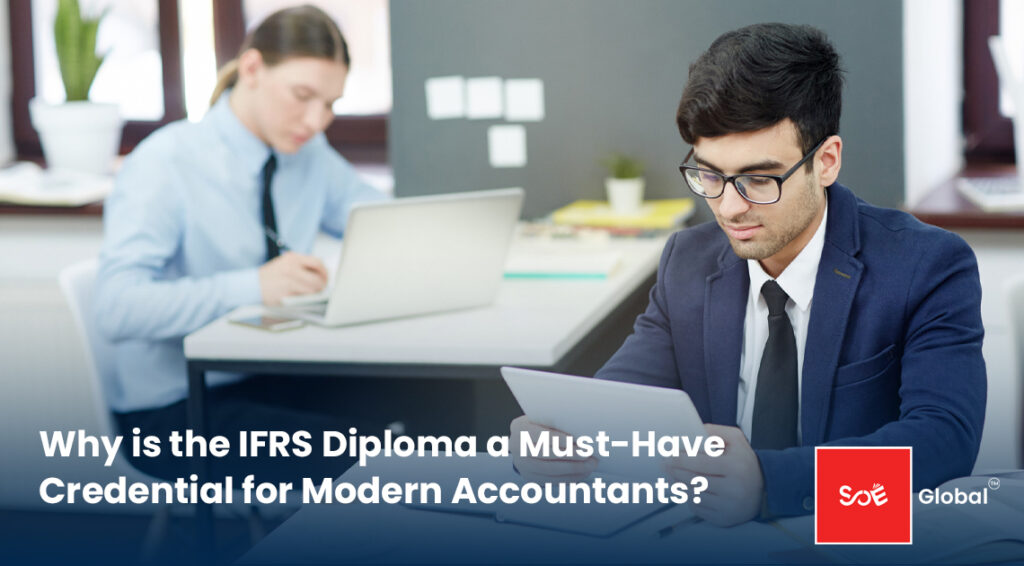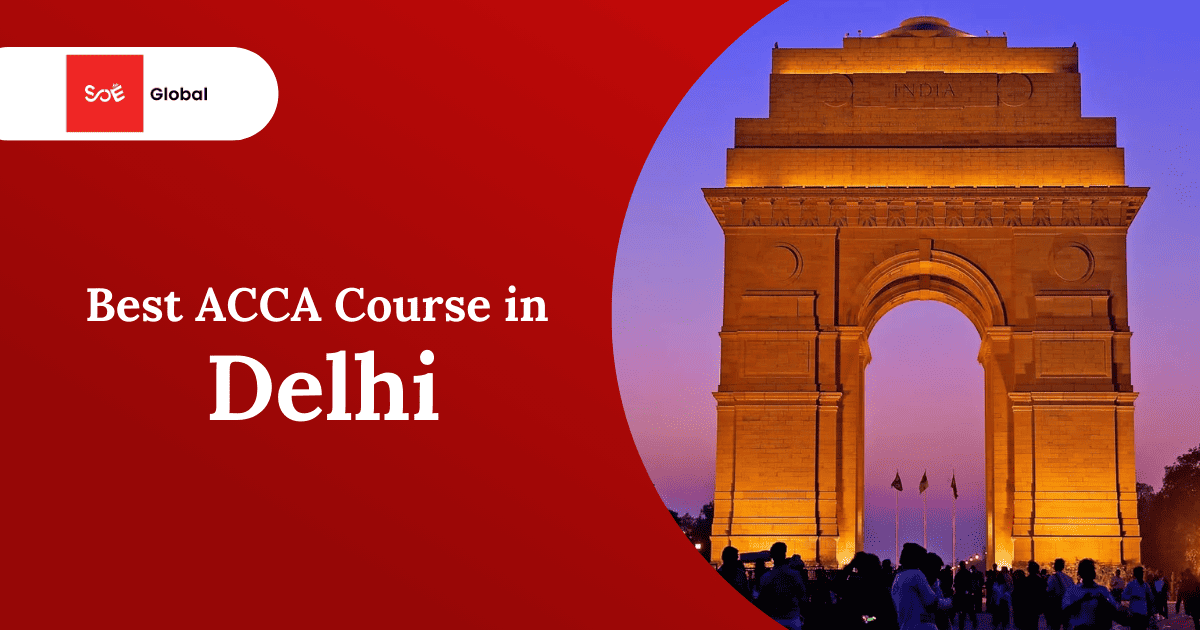In a world where financial transparency and accuracy are paramount, are you equipped with the skills that multinational corporations and top-tier firms are actively seeking?
Have you ever wondered how mastering a set of globally recognized accounting standards could open the doors to exciting career opportunities?
If you’re nodding in agreement, then this blog is tailor-made for you. Whether you’re a seasoned accounting professional or a fresh graduate aiming to stand out, the journey towards becoming an IFRS expert holds immense promise.
Let’s explore why obtaining an IFRS Diploma might be the game-changing move you’ve been contemplating. Get ready to unlock a world of possibilities and take your accounting career to soaring heights!
Understanding IFRS:
IFRS is a set of accounting standards developed by the International Accounting Standards Board (IASB) to provide a common framework for financial reporting across different countries and industries. These standards are designed to enhance the accuracy, transparency, and comparability of financial statements, enabling stakeholders to make informed decisions.
With the increasing globalization of business operations, proficiency in IFRS has become a sought-after skill for accounting professionals worldwide.
Why do you need an IFRS Diploma?
Global Recognition and Credibility:
An IFRS Diploma demonstrates your expertise in international accounting standards, making you a valuable asset for multinational corporations, audit firms, and financial institutions operating across borders. Employers recognize the diploma as evidence of your commitment to staying updated with evolving financial reporting requirements.
Enhanced Career Opportunities:
Many top-tier companies require professionals who possess a deep understanding of IFRS to ensure accurate financial reporting and compliance. Holding an IFRS Diploma opens doors to various career opportunities, including:
- Financial Reporting Specialist:
Prepare and analyze financial statements according to IFRS, ensuring compliance and accuracy.
- Internal Auditor:
Conduct internal audits to assess the company’s financial reporting practices and adherence to IFRS.
- Financial Controller:
Oversee financial operations, manage reporting processes, and ensure alignment with IFRS.
- Accounting Consultant:
Provide expert guidance to organizations on implementing IFRS standards and navigating complex transactions.
Expertise in Complex Transactions:
IFRS covers a wide range of complex financial transactions, including revenue recognition, financial instruments, leases, and more. Gaining expertise in these areas through the diploma equips you to navigate intricate accounting challenges and provide accurate guidance to your organization.
Meeting Regulatory Demands:
In countries where IFRS adoption is mandatory or encouraged, having an IFRS Diploma demonstrates your readiness to comply with regulatory requirements. This is especially crucial for professionals working in industries with stringent reporting standards.
Career Progression:
An IFRS Diploma sets you apart in the competitive job market, increasing your chances of career progression and advancement. It positions you as a subject-matter expert and paves the way for leadership roles in finance and accounting.
Continuing Professional Development (CPD):
Pursuing an IFRS Diploma is a testament to your commitment to continuous learning and professional development. Many accounting bodies and employers value individuals who invest in expanding their knowledge and skills.
Getting the most out of your IFRS Diploma:
To fully capitalize on the benefits of an IFRS Diploma, consider the following strategies:
Stay Updated:
IFRS standards are periodically updated. Stay informed about the latest amendments and revisions to ensure your knowledge remains current.
Apply Practical Knowledge:
Translate your theoretical understanding of IFRS into practical scenarios. Work on real-world case studies or engage in projects that involve applying IFRS principles.
Networking:
Connect with other professionals who hold IFRS Diplomas. Networking can lead to valuable insights, collaboration opportunities, and exposure to different perspectives on financial reporting.
Continuous Learning:
While the diploma is a significant achievement, the world of accounting is ever-evolving. Continuously seek opportunities to expand your expertise through workshops, seminars, and other learning resources.
Conclusion:
An IFRS Diploma is not just a credential; it’s a testament to your commitment to excellence in financial reporting. In an era of global business integration, the significance of international accounting standards cannot be overstated.
By obtaining an IFRS Diploma, you position yourself as a forward-thinking accounting professional who is ready to embrace the challenges and opportunities of the dynamic financial landscape. This diploma is not just a milestone; it’s a gateway to a world of enhanced career prospects, global recognition, and the fulfillment of your aspirations in the field of accounting.
So, why wait? Don’t just settle for being proficient; become a leader in the field of financial reporting. Enroll in the SOE Global IFRS Diploma course today and unlock a world of exciting career opportunities in the dynamic realm of accounting and finance.




